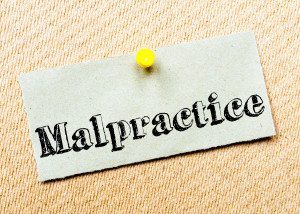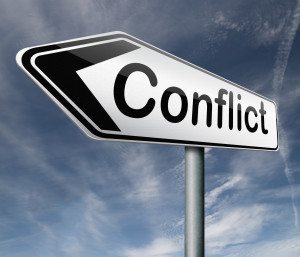 A Dallas appeals court has upheld a trial court’s ruling in favor of Baker Botts, L.L.P. on its former client’s claim for patent malpractice based on the firm’s simultaneous representation of two clients in the same technical field. See Axcess International, Inc. v. Baker Botts, L.L.P., No. 05-14-01151-CV (Tex. App.–Dallas Mar. 24, 2016) (mem. op.)
A Dallas appeals court has upheld a trial court’s ruling in favor of Baker Botts, L.L.P. on its former client’s claim for patent malpractice based on the firm’s simultaneous representation of two clients in the same technical field. See Axcess International, Inc. v. Baker Botts, L.L.P., No. 05-14-01151-CV (Tex. App.–Dallas Mar. 24, 2016) (mem. op.)
The case arose from Baker Botts’ representation of Axcess International, Inc. and its competitor, Savi Technologies, Inc. Both companies sought, and eventually obtained, patents in the field of active-radio-frequency identification (“RFID”) products and services. In 2010, Axcess sued Baker Botts alleging patent malpractice, breach of fiduciary duty, and failure to disclose material information. A jury found in favor of Axcess on its claim of malpractice, but the trial court found the lawsuit was untimely filed and entered a take-nothing judgment in favor of Baker Botts.
While several issues were raised on appeal, the Texas appellate court ruled that Axcess failed to prove the element of harm proximately caused by the alleged negligence of Baker Botts. The court held, “In this case, we find no legally sufficient evidence that Baker Botts’ acts or omissions caused Axcess to suffer a compensable injury.”
At trial, Axcess’s expert testified that “with conflict-free counsel,” Axcess could have filed or threatened to file an interference proceeding in the USPTO against Savi and amended the claims of one of its patent applications. Axcess’s expert also testified that if Axcess had succeeded in the hypothetical interference proceeding, then “Savi’s lucrative government contracts utilizing the patent would be at risk” and thus Axcess “would have been in a better position to negotiate a business solution with Savi” that would have resulted in “some unspecified business deal.” A jury awarded Axcess $41 million.
The appeals court found that Axcess’s causation evidence was too speculative and that Axcess had to prove “with competent, non-speculative evidence” what would have happened, not simply what could have happened.
 With regard to the alleged hypothetical interference proceeding, the court further found that Axcess’s opinions “are simply ungrounded in any explanation as to how the USPTO, including the Interference Practice Specialist and the panel of administrative patent judges, would have viewed the hypothetical suggestion of interference.” The court noted that Axcess’s expert witness was not a specialist in the field of interference practice and that the witness “admitted that reasonable people might differ from his conclusions about the similarities of the claims and specification” in the two allegedly interfering patents.
With regard to the alleged hypothetical interference proceeding, the court further found that Axcess’s opinions “are simply ungrounded in any explanation as to how the USPTO, including the Interference Practice Specialist and the panel of administrative patent judges, would have viewed the hypothetical suggestion of interference.” The court noted that Axcess’s expert witness was not a specialist in the field of interference practice and that the witness “admitted that reasonable people might differ from his conclusions about the similarities of the claims and specification” in the two allegedly interfering patents.
The court also rejected Axcess’s claim that if it had been represented by “conflict-free counsel it would have enhanced its patent claims and Savi would have–as a rational business person–entered into a deal with Axcess.” The court again found the evidence presented too speculative and was not supported with its expert’s opinions, which the court characterized as “conclusory” and “without factual basis.” On the contrary, the evidence presented was that in prior dealings, when challenged, Savi fought back on the merits and prevailed. Thus, the court found the expert’s testimony regarding what Savi “would have done” was “too speculative.”
The court ruled as a matter of law that Axcess’s opinion evidence on causation was speculative and “constitutes legally insufficient evidence of causation.” The court thus upheld the trial court’s judgment based solely on the causation issue without reaching the merits of whether Axcess’s claim was barred by limitations or suffered from insufficient proof of damages.